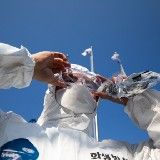How To Protect Our Hospitals
It’s not clapping
Clapping for your public health workers doesn’t help. It’s the embodiment of this meme:
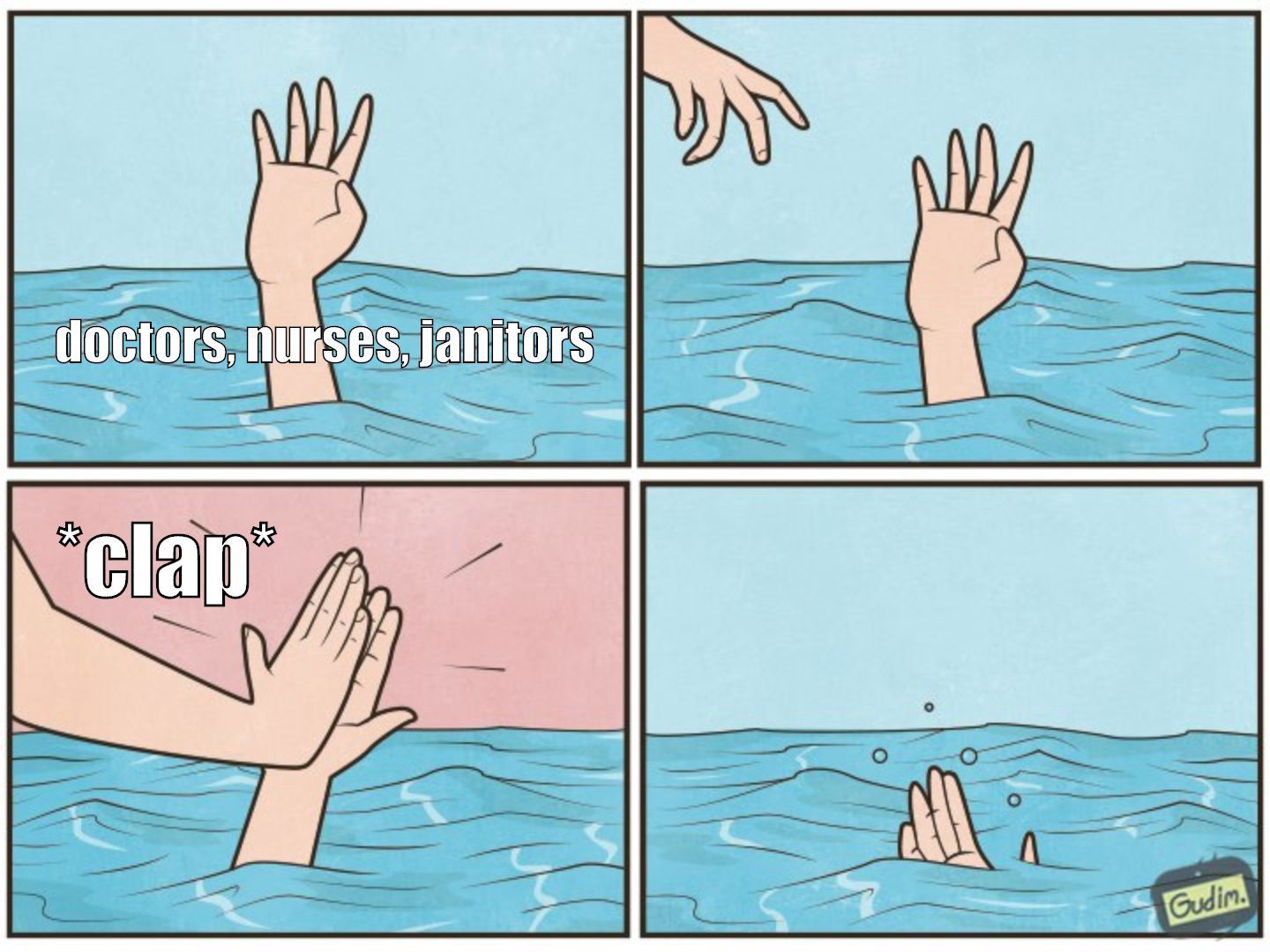
The best way to protect doctors, janitors and nurses is to not send them sick people at all. The best way is to take stringent public health measures before a single case walks in the door.
The fact is that by the time a case hits the ICU, society has already failed a hundred times. We should be ashamed to clap. Save your applause, and save their lives instead.
Public Health
There is no cure for COVID-19. There is no proven treatment. We are asking our medical workers for the impossible.
There is nothing doctors can reliably do except save the few people that are on the edge. There is nothing nurses can do except ease suffering and hope for the best. There is nothing janitors can do except clean up the mess.
Like SARS, SARS-CoV-2 cannot be defeated with modern medicine. If your hospital looks like a frontline you’ve already lost. The invaders are already through the gates. Coronavirus is a public health problem and it should be fought by people with clipboards, not stethoscopes.
This is how we defeated SARS (there was never a vaccine) and this is the only way to mitigate COVID-19. Old-fashioned public health management, not too different from 1918.
So what is public health? There are two main components I’ll discuss here. One is what the public does, and the other is what public health workers do.
What The Public Does
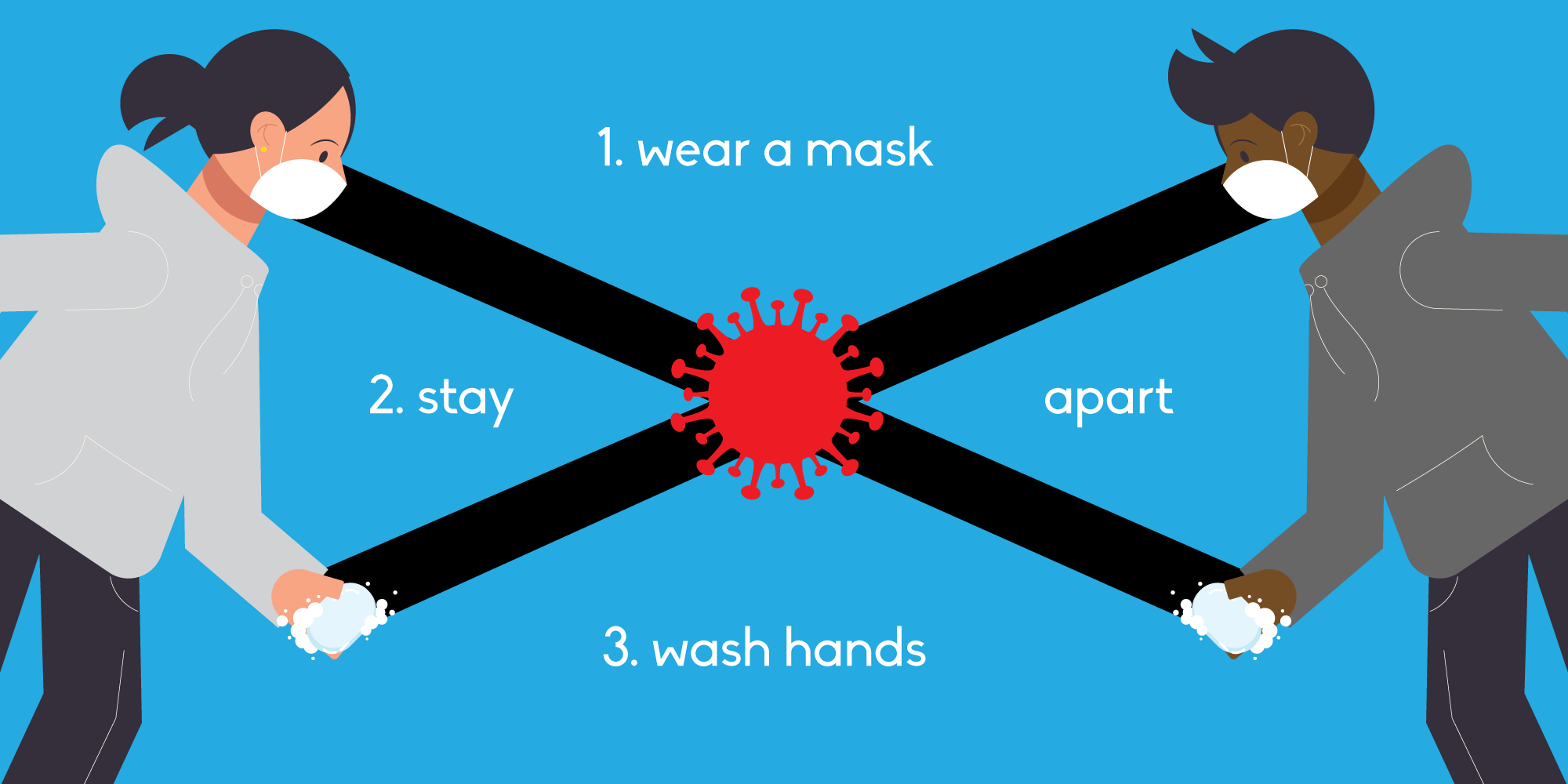
There are many things we can do, but they only work if we do them together. That’s why leadership matters so much.
If you’ve elected cruel fools, they will kill you. They’ve been killing the marginalized for years, but now everyone can see it. Because it’s happening to them.
Let’s assume that ship has sailed. What can you do?
The simplest answer is just follow East Asia. Don’t wait for computer-modeled white people, just follow the people that have dealt with SARS, MERS and now this. So what do they do?
- Near universal face masking
- Social distancing
- Washing hands
That’s it. Stay home if you can, mask up if you’re out, and wash your hands as much as possible. These actions give the virus much fewer opportunities to spread. These steps — taken together across a population — make it harder for a virus to get out of a face, to survive on a hand, or to get into another face. In the absence of a vaccine, this is as close as we get to herd immunity.
Note that if your shepherd is malcompetent then he may as well be grilling up the herd himself.
Regardless, do what you can. Remember, my mask protects you, your mask protects me. We have to do this together. Mask up, wash up, stay the fuck at home.
In lieu of…
The last-ditch version of this, which is the ditch I’m in, is a complete lockdown. In the absence of people taking these measures, everyone just gets locked in their houses. This accomplishes the same thing (fewer vectors for the virus to spread) but at a terrible human cost.
Either way, these public health measures protect our health system. Remember, our medical workers cannot cure this disease. We should give them fewer patients, nor more hospitals. That means giving the virus fewer opportunities to spread.
What Public Health Workers Do
A hospital-first approach to a pandemic is like fighting a whole chess match with your king. You’re going to lose. Countries that are fighting well, like South Korea, take every possible measure to keep cases away from their hospitals.
These are the basic pieces you have in a game of pandemic chess:
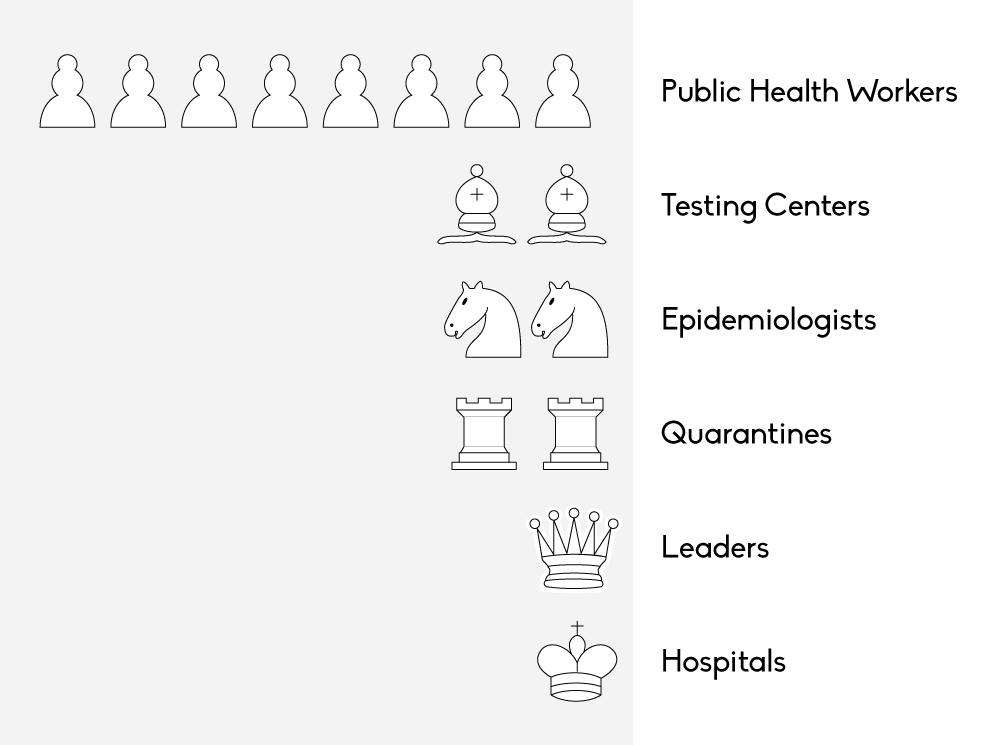
If you read Korea’s COVID-19 Playbook, you can see that they take every possible measure to protect their king — teams tracking every case, massive amounts of testing, epidemiologists charting spread, quarantine centers and high-tech self-quarantine. They developed all their pieces years ago and they were ready. But they’re still struggling.
They have built a castle around their hospitals, but COVID is still at the gates. This is hard. Western countries, on the other hand, are not even trying.
This is how countries like the UK and US play (at right):
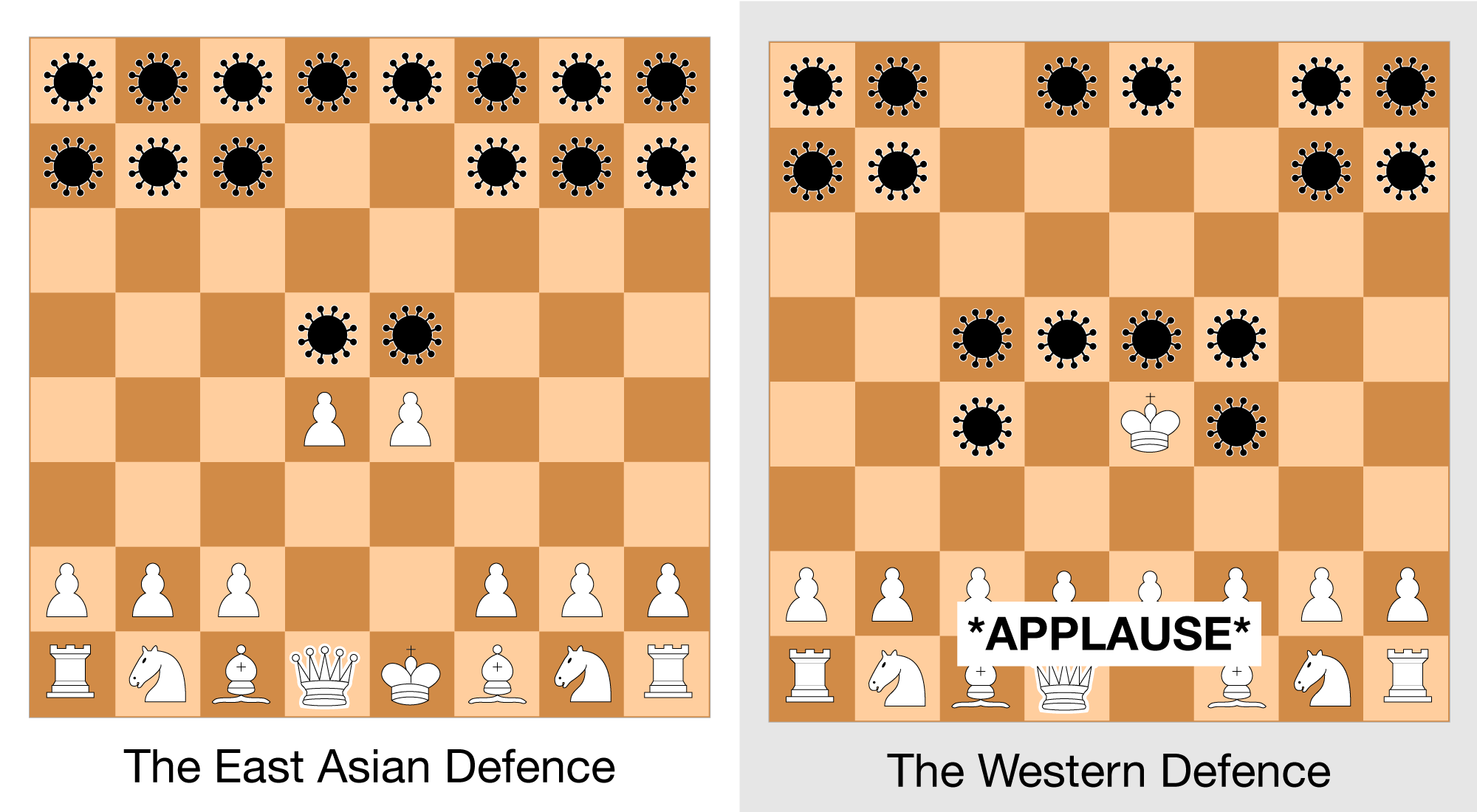
The Western Defence is to take cases directly into your hospital, sickening and killing your health workers, and then calling them heroes. More like cannon fodder. This is nothing to clap for. This is a tragedy, where society and government have not done their job.
Our job is to test, trace and isolate. To find the infected, find their contacts and isolate them to prevent more spread. To reduce the number of patients, not just sit back and clap at our own mess.
Fighting with your hospitals is not heroic, it’s insane. You end up losing almost immediately, with thousands dead and your population thrown into poverty.
For many of us, it’s too late. The king is already surrounded. Death is already upon you. But others still have a chance. Test, trace and isolate. Tattoo it on your face. Protect your hospitals by getting people in front of them, doing the painstaking work that hasn’t changed much since 1918.
Supplies
The final piece of the puzzle is supplies. Specifically,
- Masks (for everyone)
- Personal protective equipment (for health workers)
- Tests
- Beds
- Ventilators
If you have enough of 1–3, you’ll never need 4–5. That’s the goal.
If your population wears cloth masks, you’ll have fewer cases. If your health workers have PPE (including the N95 masks), they’ll be safe. If you have tests public health workers can test/trace/isolate.
If this all works you’ll have done your job. You’ll have protected hospitals.
Only if you fail will you need more beds and ventilators. This is where many western countries are starting, but it’s backward. An ounce of prevention is worth a pound of cure. And we don’t have a cure. So we must try prevention.
As a society, our hospitals keep us alive. If they collapse, we did, not just to COVID but to all the other diseases and accidents that go untreated. Therefore, we must protect our hospitals at all costs. If they end up on the frontlines we shouldn’t clap. We should stand on our balconies and weep.
